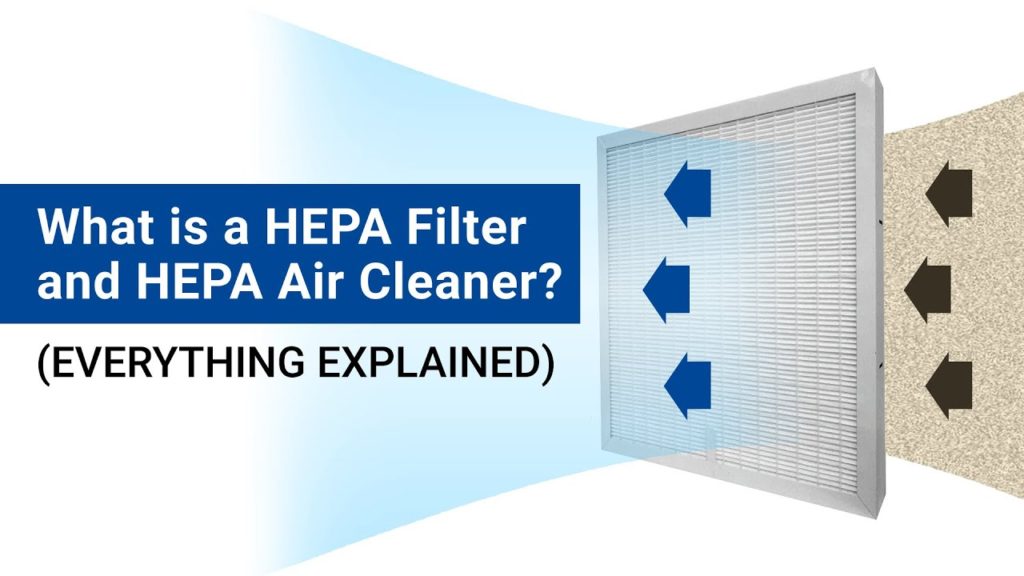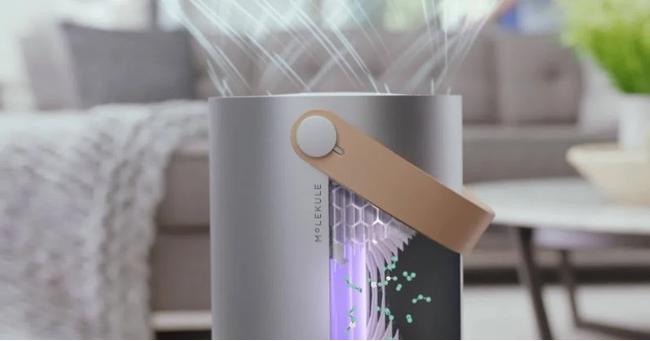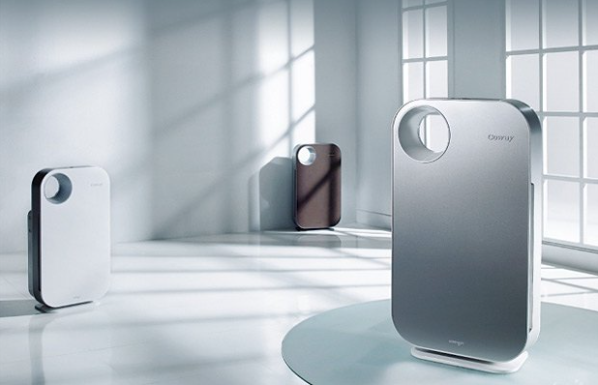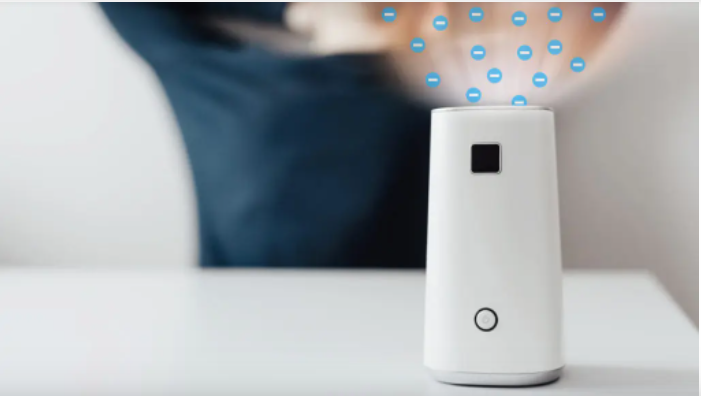Many people believe that HEPA air purifiers are always beneficial, but this is not always the case. There are some potential HEPA air purifier side effects to be aware of before making your purchase, just as there are with most things in life. We’ll go over them in detail in this guide so you can make the best decision possible when it’s time to buy.
What is and How does HEPA Filter Works?

The US Department of Energy established the HEPA standard. Although it may appear strange that the Department of Energy created an air filtration standard, HEPA was first developed in the 1940s for use in nuclear power plants. Shielding can help to keep radiation contained, but irradiated dust and moisture particles could indeed spread radioactive contamination through air ducts and corridors. To keep potentially radioactive particles contained, HEPA filters were developed. It’s been used in a variety of industries and applications since then. These HEPA filters began to appear in the consumer market in the 1960s as filters for HVAC units, vacuum cleaners, and stand-alone air purifiers.
HEPA Air Purifier Side Effects

HEPA air purifiers purify the air in your home, office, or vehicle by removing smoke and other airborne contaminants. However, it can be difficult to tell what is true and what is not when reading about HEPA air purifier side effects. Here’s what you need to know about HEPA air purifiers to see if they have any side effects.
1. Require the Replacement of Expensive Filters
HEPA filters aren’t considered reusable because they’re designed to be so dense. Though some techniques can extend the life of the filters, they still need to be replaced regularly. One of the issues is that until you use a HEPA filter for a while, you have no idea how nappy it can get. Grease and grime that won’t come off get lodged deep within the fibers.
2. Consistent Upkeep
Though most of your household appliances don’t need to be serviced regularly, most machines that deal with air need to be serviced regularly to function properly. It’s no different with a True HEPA air purifier. Cleaning and replacing the filters regularly is required to ensure that the machine functions properly.
3. Disturbing
HEPA air cleaners are notorious for being loud. They can be so loud that they are classified as noise machines. HEPA air cleaner companies frequently use language like “a blanket of white noise to help your baby sleep” in their advertising to promote their products.
If you’re looking for a white noise machine and an air purifier, there’s good news. However, different methods of moving air through fans necessitate multiple small quiet fans rather than one or two larger fans, to be fair. It’s worthwhile to investigate how loud the machine will be before purchasing it.
4. Do Not Use A Virus Or VOC Filter
Even though the high-efficiency particulate absorber filter is known for having the smallest capacity to filter out particulate,
Many airborne pollutants are smaller than 03 microns. These are some of them:
4.1- Volatile organic compounds (VOCs)
VOCs, or chemical pollution, are a type of air pollution. Adhesives, cleaners, fuels, and off-gassing from construction products are among them. Strong odors and fumes.
Paint and paint thinners are commonly used in crafting rooms. Also used in nail salons are many polishes and nail polish remover. All of these are examples of air pollution that a HEPA filter will not be able to remove.
4.2- Bacteria and viruses
Germs and viruses simply cannot be broken down or neutralized by HEPA filters. It’s been suggested that if HEPA filters aren’t replaced regularly, they can turn into a germ farm. To be fair, only a few, if any, air purifiers use HEPA as their primary air cleaning technology.
Most modern cleaners include a method for ensuring that the filter machine does not become a live source of germs.
5- Concentrate Your Efforts on a Small Area
HEPA air purifiers are much more efficient for a small space because of the way they work. You can imagine the difference between pulling air from a small bedroom through a filter and pulling air from a large room through a filter.
When compared to the difficulty of filtering the air from a large living area. In a small space, getting a good result will be much easier.
6. Induct Systems Do Not Work Well
Indoor air purification is increasingly relying on the HVAC system as a whole-house air purifier.
The reason for this is that installing an air purifier inside your central heat and air unit can provide clean air to the entire house as well as clean the air before it is recirculated.
Though it is possible, HEPA filters are available for use in standard HVAC replacement filter slots.
The HEPA filter’s density is so high that it prevents the free flow of air that the HVAC system requires to function properly. Also, even though they have a residual effect in preventing dust from entering the air. The primary purpose of HVAC filters is to keep dust out of the air handler and protect the machinery.
It does, however, have some advantages. A HEPA filter, also known as a high-efficiency particulate absorber, is a super-dense filter that can capture particles as small as 0.03 microns. True HEPA is the new appropriate name for a HEPA filter, due to copycat filters that are not capable of capturing particulates as small.
This is to distinguish ourselves from companies that call their filters HEPA but don’t work at the same level. Be aware that if it doesn’t say True HEPA, it might not be the same thing.
Advantages of HEPA Air Purifiers

1. Capable Of Capturing Particles as Small As 0.03 Microns
Most household allergens, such as dust mites, pet dander, mold spores, and dust, fall into this category. The majority of indoor air allergies fall into one of these categories.
2. It Is Completely Risk-Free
Because a HEPA air purifier is essentially a large fan that pulls air through a filter, it does not have the ozone-producing issues that electronic air purifiers do.
3. No Ozone Layer
Ozone is not produced as a byproduct of HEPA air purifiers. Many of the concerns about machines that produce ozone can be alleviated by using HEPA rather than ionic filters.
4. Very Efficient
Household allergens such as dust mites, pollen, pet dander, and mold spores are effectively reduced by HEPA air purifiers. Many vacuum cleaners are also equipped with HEPA filters. Vacuuming with a HEPA filter will greatly aid your air purifier’s performance.
5. Can Run At All Times
Unlike other air cleaners that require a room to be aired out after use, a HEPA air cleaner produces nothing harmful and can only be beneficial to those looking to improve their breathing.
Smart HEPA Air Purifiers
Though most air purifiers use it, HEPA is only one type of air cleaning technology. It is usually used in conjunction with one or two other technologies. Smart air purifiers combine multiple technologies to oxidize and filter contaminants in the room based on sensors that continuously monitor air quality.
These cleaners only turn on and off when they’re needed, extending the life of a HEPA filter significantly. In addition, it significantly reduces the amount of noise produced by an air purifier.
They also connect everything to a smartphone app, allowing you to control or schedule your air cleaner remotely or simply see how clean your air is at any given time.
Conclusion
HEPA air purifiers remove harmful particles from your home’s air, which is especially beneficial if you have allergies or asthma. However, before you buy one of these devices, you should be aware of the possible HEPA air purifier side effects. If you have certain health issues or have pets who share your home with you, your doctor may recommend using an alternative air purifier, even though they don’t cause serious problems in most people.
Frequently Asked Questions
Q: Is it necessary for me to purchase a HEPA air purifier for my home?
A: A HEPA filter should only be viewed as a piece of the puzzle in terms of improving your indoor air quality. As you can see, HEPA has a lot of flaws, especially when it comes to submicron particulates like VOCs and viruses.
HEPA might be right for you if you’re concerned about larger particles like dust, pollen, and animal dander. HEPA might not be right for you if you’re concerned about other sources of indoor air pollution like VOCs, viruses, and bacteria.
Q: Can air purifiers aggravate allergies?
A: Laminar flow HEPA air cleaners have recently been introduced, and when used in special pillows, they may provide some benefit during sleep. Never buy “air purifiers” that produce ozone. According to the Environmental Protection Agency and doctors, ozone is a respiratory irritant that can aggravate allergy and asthma symptoms.
Q: Are HEPA filters free of ozone?
A: Filters with HEPA technology are designed to filter out 99.97% of all particles with a diameter of 0.3 microns from the air. They do not produce ozone and are ineffective against odors, VOCs, and other gaseous pollutants.
Q: Can air purifiers aid in the treatment of Covid?
A: Air purifiers, when used properly, can help reduce airborne contaminants such as viruses in a home or confined space. On the other hand, a portable air cleaner is insufficient to protect people from COVID-19.
Q: Is it true that air purifiers deplete oxygen?
A: Air purifiers are intended to clean the air inside your home so that you and your family can breathe comfortably. Some purifiers also absorb oxygen from the air, but this does not affect the amount of oxygen you breathe. The amount of oxygen in the air is not reduced by air purifiers.
